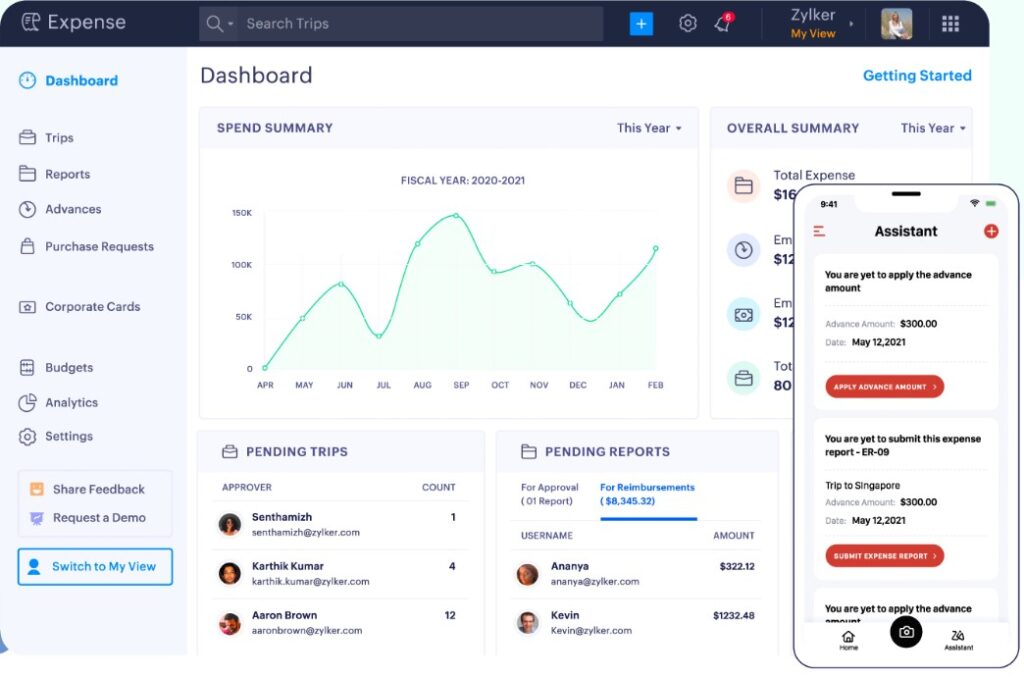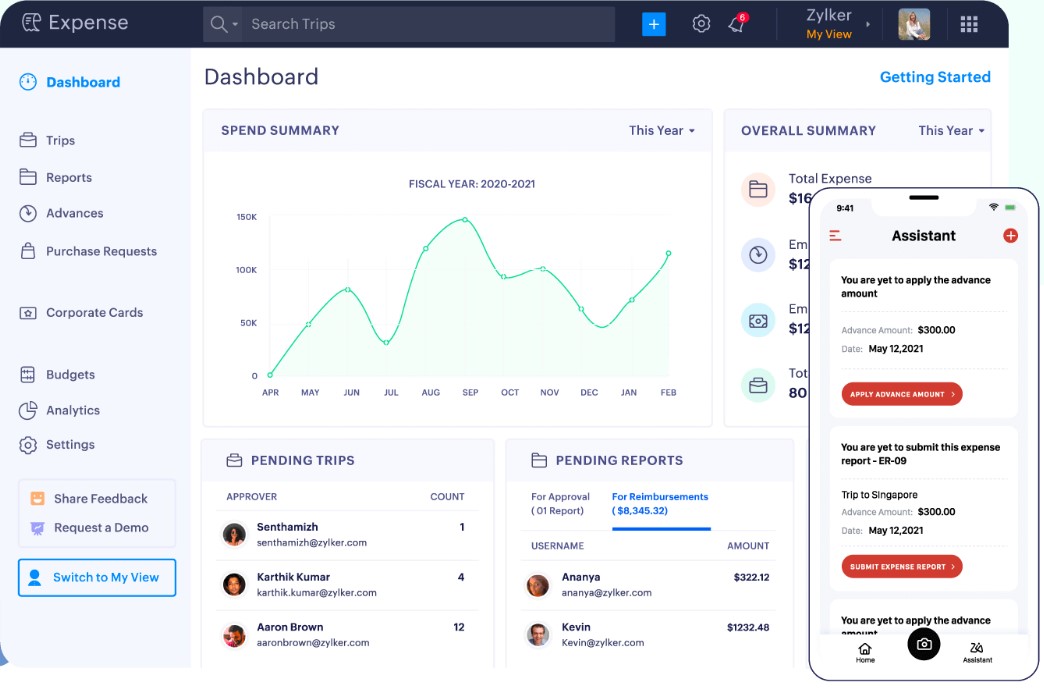How to Keep Track of Expenses for Self-Employed – As a self-employed professional, managing your finances is crucial to the success of your business. Keeping track of your expenses not only ensures you stay on top of your cash flow but also makes tax season a breeze. The right tools can simplify this process, helping you save time and avoid costly mistakes.
In this guide, we’ll explore the best tools to help self-employed individuals track their expenses, the benefits of using these tools, and how they can solve common challenges. Plus, we’ll compare several top solutions to find the best one for your needs!
Why Tracking Expenses Is Essential for the Self-Employed

Tracking expenses as a self-employed professional isn’t just about staying organized—it’s also about ensuring your business remains profitable and tax-compliant. Here are some key reasons to prioritize expense tracking:
- Tax Deductions: Accurate tracking helps you identify deductible business expenses, reducing your tax liability.
- Cash Flow Management: Monitoring your expenses allows you to make informed decisions about your business’s financial health.
- Simplified Tax Filing: When it comes time to file taxes, having your expenses properly categorized and tracked saves you a ton of time and stress.
- Financial Planning: Understanding where your money goes helps with budgeting and forecasting for future business needs.
Now, let’s dive into some powerful tools that can help self-employed individuals track expenses effectively.
Top 5 Tools for Tracking Expenses as a Self-Employed Professional
1. FreshBooks
FreshBooks is a well-known accounting software designed for small businesses and freelancers. It offers an intuitive interface, making it easy for self-employed individuals to track their expenses, create invoices, and manage their finances.
- Key Features:
- Expense tracking and categorization
- Automatic bank connection for real-time expense updates
- Tax-friendly reports to simplify filing
- Time tracking and project management tools
- Price: Starts at $17/month
- Pros:
- Easy to use, even for non-accountants
- Comprehensive invoicing features
- Great customer support
- Cons:
- Limited features on lower-tier plans
- Slightly higher pricing compared to some competitors
- Use Case: Freelancers and contractors who need a simple, all-in-one accounting solution with strong invoicing capabilities.
- Buy FreshBooks: Start your free trial
2. QuickBooks Self-Employed
QuickBooks Self-Employed is a popular tool that caters to freelancers and contractors. It excels in tracking expenses for tax purposes and integrates seamlessly with TurboTax for easy filing.
- Key Features:
- Expense categorization for tax deductions
- Mileage tracking for business travel
- Tax estimation and preparation tools
- Integration with TurboTax for easy tax filing
- Price: Starts at $15/month
- Pros:
- Excellent for tax preparation
- Integration with TurboTax
- Mileage tracking feature
- Cons:
- Lacks advanced features for growing businesses
- Limited customization options
- Use Case: Freelancers who need strong tax features and easy integration with TurboTax for filing.
- Buy QuickBooks: Explore QuickBooks Self-Employed
3. Wave Accounting
Wave is a free accounting software designed for small businesses and freelancers. While it doesn’t offer as many advanced features as paid options, it’s a great budget-friendly solution for self-employed professionals looking for basic expense tracking.
- Key Features:
- Free expense tracking and invoicing
- Bank connection for automatic expense categorization
- Basic reporting for tax preparation
- Free receipt scanning via mobile app
- Price: Free
- Pros:
- Completely free to use
- No hidden fees
- Easy-to-use interface
- Cons:
- Limited customer support
- Lacks advanced features like time tracking
- Use Case: Self-employed professionals or freelancers on a tight budget who need basic accounting and expense tracking features.
- Get Wave: Start using Wave for free
4. Zoho Books
Zoho Books is part of the Zoho suite and offers comprehensive accounting tools for small businesses. Its expense tracking features are robust, making it a great choice for self-employed individuals who need more advanced features as their business grows.
- Key Features:
- Expense tracking with customizable categories
- Detailed reporting for tax purposes
- Project management and time tracking features
- Multi-currency support
- Price: Starts at $10/month
- Pros:
- Highly customizable
- Affordable pricing plans
- Strong integrations with other Zoho tools
- Cons:
- Learning curve for beginners
- Limited mobile app functionality
- Use Case: Growing small businesses or freelancers who need a customizable accounting solution with advanced features.
- Buy Zoho Books: Explore Zoho Books
5. Xero
Xero is a powerful accounting tool designed for growing businesses. While it may be more complex for some freelancers, it offers advanced features like expense tracking, invoicing, and even inventory management for those who need it.
- Key Features:
- Expense tracking and multi-currency support
- Invoicing and receipt scanning
- Financial reporting and payroll integration
- Supports unlimited users on all plans
- Price: Starts at $13/month
- Pros:
- Advanced accounting features
- Strong integrations with other business tools
- Supports multiple users and currencies
- Cons:
- Can be complex for beginners
- Higher cost for advanced plans
- Use Case: Small business owners and freelancers who need more robust accounting features as their business scales.
- Buy Xero: Get started with Xero
Comparison Table: Expense Tracking Tools for Self-Employed
| Tool Name | Use Case | Pros | Cons | Price | Features |
|---|---|---|---|---|---|
| FreshBooks | Freelancers & contractors | Easy invoicing, strong support | Limited features on lower plans | $17/month | Invoicing, expense tracking, time tracking |
| QuickBooks Self-Employed | Freelancers needing tax prep | TurboTax integration, mileage tracking | Lacks advanced features | $15/month | Tax estimation, mileage tracking, TurboTax sync |
| Wave Accounting | Budget-conscious freelancers | Free, no hidden fees | Limited support and features | Free | Basic accounting, invoicing, receipt scanning |
| Zoho Books | Growing businesses | Customizable, affordable | Learning curve for beginners | $10/month | Advanced accounting, project management |
| Xero | Small business scaling | Unlimited users, multi-currency support | Complex setup for freelancers | $13/month | Invoicing, expense tracking, inventory management |
Benefits of Using Technology to Track Expenses
- Automated Expense Tracking: By connecting your bank accounts and credit cards, these tools automatically categorize your expenses. This eliminates manual entry and reduces errors.
- Real-time Updates: With automatic syncing, you get real-time updates on your cash flow, helping you make informed decisions faster.
- Tax-ready Reports: Many expense tracking tools generate tax reports, saving you time during tax season and ensuring accuracy with your filings.
- Time Savings: Automating tasks like expense tracking and invoicing can save you hours of manual work each month.
- Financial Insights: These tools provide valuable insights into your spending habits, helping you manage cash flow and budget more effectively.
How to Buy Expense Tracking Tools (Transactional Section)
If you’re ready to simplify your accounting and start tracking your expenses effectively, here’s how you can get started:
- FreshBooks – Buy FreshBooks
Pricing starts at $17/month with a 30-day free trial. - QuickBooks Self-Employed – Explore QuickBooks
Pricing starts at $15/month with TurboTax integration. - Wave Accounting – Start using Wave for free
Wave offers free accounting, invoicing, and expense tracking. - Zoho Books – Buy Zoho Books
Pricing starts at $10/month with customizable features. - Xero – Get started with Xero
Pricing starts at $13/month with advanced accounting features.
Use Cases: Why You Need an Expense Tracking Tool
- Freelancers: Managing business expenses manually can be tedious and prone to errors. Tools like FreshBooks and QuickBooks make it easier to track income, expenses, and tax deductions without spending hours on bookkeeping.
- Small Business Owners: Growing a small business requires financial clarity. Tools like Xero and Zoho Books provide advanced features such as multi-currency support and inventory tracking, helping you scale your business with confidence.
- Contractors: Contractors often juggle multiple projects and clients. Expense tracking tools allow for easy project-based cost tracking, ensuring you don’t lose sight of profitability.
FAQs
- What is the best tool for freelancers to track expenses? FreshBooks and QuickBooks Self-Employed are both excellent for freelancers, offering easy-to-use interfaces and tax preparation features.
- Can I use free software to track expenses? Yes, Wave Accounting is a free tool that offers basic expense tracking and invoicing.
- How do I categorize expenses for tax purposes? Most tools like QuickBooks and Zoho Books automatically categorize expenses based on your spending, helping you prepare for tax deductions.
- What’s the best expense tracker for small businesses? Xero and Zoho Books are great options for small businesses needing advanced features like multi-currency support and payroll integration.
- How can I track expenses while traveling for work? Tools like QuickBooks Self-Employed offer mileage tracking, making it easy to log business-related travel expenses.
By using the right tools to track your expenses, you’ll not only save time but also ensure your finances are in order—leaving you free to focus on growing your business!
Read More:
- Best Free Apps for Self-Employed in 2024 | Manage Your Business Like a Pro
- Best Independent Contractor Job Apps for 2024 | Work Smarter, Earn More
